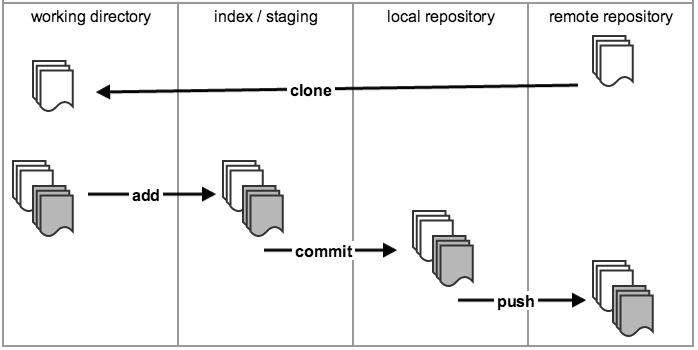
Github is a web-based repository hosting service. You can use it to host source code plus documentation, wikis, issue tracking & more. Public (ie open) projects are free.
You can also use Github pages to host static websites directly from your Github repository.
Github hosts Git repositories - these are a way of versioning / tracking changes to a set of files.
This is just for background information, you might want to skip straight to Github pages.
To create a new local repository simply create a new directory and type git init
eg
cd code
mkdir helloworld
cd helloworld
git initTo grab a copy of a remote repository use git clone <url>
eg
cd code
git clone https://github.com/username/somerepository
cd somerepositoryTo tell Git which files to version, first add them to the repository using git add <filename>.
Then you need to commit these staged files using git commit and providing a brief commit message explaining whats changed.
And finally you can push these to a remote repository with git push eg
cd code
cd somerepository
git add file1.txt file2.txt
git commit -m 'Initial commit, adding new files'
git push